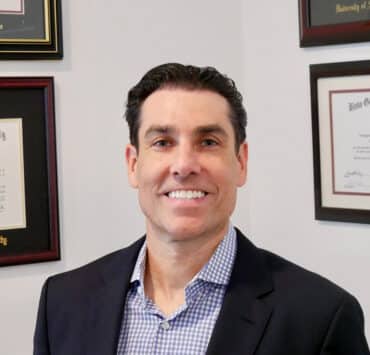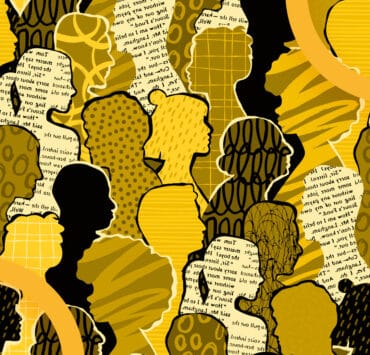|
Getting your Trinity Audio player ready...
|
“We can’t listen to Luis Miguel or Mana on July 4,” a friend said, with boats around blasting their music on the Severn River in Annapolis, Maryland. “Put on ‘Born in the USA,’” yelled another. I exclaimed, “As a guy who spent thirty years in uniform, yes, we can! What is more American than listening to the music of your choice on the day of independence?” I realized I was among first-generation Americans born abroad and that, perhaps, they felt a need to assimilate instead of integrating.
This interaction made me curious. How do we strengthen our diverse national identity without sacrificing our cultural identity?
Fast forward a month and I was out for a walk, listening to the sounds around me as usual. However, the universe had other plans for me this particular Thursday. LinkedIn notified me that “Exploring Marianismo in the 21st Century,” hosted by the El Puente Institute, was about to start. I listened. As you might imagine, the session focused on specific challenges in the Latina community. The guest stated that a “white woman,” Dr. Evelyn Stevens, coined the term marianismo. The United States and America were each spoken once during the session. (Incidentally, Dr. Stevens was the first woman to serve as the president of the Latin American Studies Association, a worldwide professional organization. She may have identified as Latina.)
Again, a curious moment took over. Is the language we use to identify others strengthening inclusivity and cultural integration?
“We are blessed with the burden of leadership in America and must rise to the occasion for all. That is a worthy American legacy.”
Jeff Marquez
I have had or heard countless conversations where Latinos refer to non-Latinos by the color of their skin, typically saying “white women” or “white males.” Yet, we know Latinos come in every color. I have heard Latinos refer to non-Latinos as “Americans.” Yet, these same Latinos are United States citizens. They are Americans. It is a bit heart-wrenching to hear. I have heard them refer to themselves as gringo, a term typically used to describe an American who is not Hispanic or Latino.
Just how are we showing up in America, these United States? Who and what is the “we?” Does it include white people? Allow the image of a white Latino to emerge in your mind. You know who it is, right? How about the Afro or Asian Latino? As my friend Chris says, “It’s hard to see the label from inside the jar.” Are we celebrating our American pride as we are our Latino, Latina, and Hispanic pride? Are they the same? Are these labels serving us, or do they divide us? Does this crux only exist because we are in the United States?
I read a post that many Latinos in the United States only wave the flag of their country of origin, not the flag of the United States, with some inferring that the US flag is now associated with a particular political campaign. This claim may have had merit a few months ago but not now. We often see the flags of other countries but not the Stars and Stripes. Some firmly believe that you should support the country you are in or move to the country you support. Can you wave both? Isn’t that what America is about?
We seek diversity, inclusiveness, belonging, and opportunity in our workplaces and communities. Are we seeking it for Hispanics/Latinos or all Americans? As I’ve asked others, they tell me that Hispanics/Latinos have had to fight for our place in America. “They [non-Hispanic white Americans] did everything to hold us back,” is a common retort. In the past and, in many ways, the present, Latinos have separated themselves from non-Hispanics because of historical wrongs. Or for being excluded.
As history takes shape, what will be the legacy of the fastest-growing demographic group?
We know America is a continent. The United States of America is our country. The demonym for the United States is “American,” and it has been common parlance to call the people of the United States “Americans.” Pan-ethnically, Hispanic is a cultural identifier, specifically language, that includes anyone from any Spanish-speaking country, regardless of race. Latino is a geographical identifier that includes anyone from Latin America, regardless of race.
Where and what is our connection to the United States of America?
Let’s proclaim Americano/a: a person of Hispanic or Latin descent who swears allegiance to the United States and chooses, or not, to maintain their cultural identity with their country of origin. It is a choice. It is an acculturation blend. You do not need to sacrifice your origin identity. It is what we see across the nation now, though the connection to the United States is lacking for myriad reasons. The Pew Research Center has extensive works on the subject.
“Americanos can set a new standard that reflects the founding ideals.”
Jeff Marquez
We are responsible for advancing our country. Will our legacy be of Latinoness or Americanness? Will the same be repeated when a group of people attempt to subvert others under the guise of America? Americanos can set a new standard that reflects the founding ideals. A nation that “holds these truths to be self-evident.” You know the rest of the story. If you don’t, brush up on your responsibilities as a US citizen.
The 2024 LDC report shows that the Americano/US Latino cohort is the fifth-largest economy in the world. It produces $3.7 trillion in GDP, surpassing India, France, and the UK, and is the fastest-growing part of the US economy. Of all races, Americanos’ economic power is a critical factor in our nation’s future—our American future.
Despite an expanding population, ever-increasing educational and business growth, and increasing home buying and economic power, Americanos as a community often participate in silos. The language we use maintains these silos and, in some cases, promotes division. Imagine Latino-oriented ventures (Latinos in Sports, The Latino Collective, Latino Leadership, etc.) becoming Americano-oriented ventures, signaling the opportunity and connection with the United States. Imagine Americanos demonstrating American pride for all.
We are at the intersection of hard work and opportunity, an American value. Americanos must grow and thrive from the inside out. As we do, break the silos, use inclusive language, and include those we may have felt left us out because we—Americanos, Americanas, Americans—can and must do better. How are you and your business advancing our nation?
No more gringo. There is a certain honor in being Americano, and it means doing the best you can. It is not only about where you are from, your skin color, or your language. It is what you do to make life better, to improve the human condition.
We are blessed with the burden of leadership in America and must rise to the occasion for all. That is a worthy American legacy.
The views expressed in this article are those of the author and do not necessarily reflect the position of Hispanic Executive or Guerrero Media.
Jeff Marquez, the founder of Marquez Leadership, Culture & Strategy LLC, helps business, government, and nonprofit leaders increase their impact and value to their team, boss, peers, and customers. A retired Army officer and former senior executive with the federal government, he served on the National Security Council as the director of continuity policy and acting senior director for response policy. He led the team that developed the successful US drawdown from Iraq in 2011. In Hawaii, he led the transformation of United States Army forces in the Pacific. He also served as a chief of staff in the federal government. In addition, he has led continuity and infectious disease planning across two administrations. You can reach him at [email protected] or (703)472-7514 and mzlcs.com.

